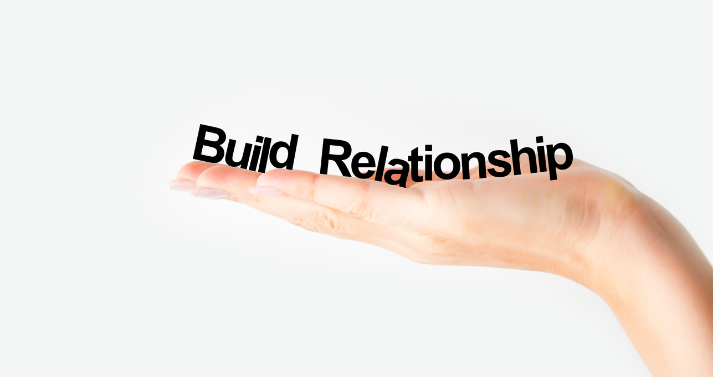FREE motivational interviewing online training on MI in clinical supervision

We have another free motivational interviewing online training for ya!
Dayna Guido was a professor of mine when I went through the UNC-Chapel Hill masters in social work program. She has been a mentor of mine and a good friend, and we LOVE to train together!
We are offering a 1.5 hr FREE Motivational Interviewing online training on the use of MI in clinical supervision. If you provide clinical supervision, join us via Telehealth Certification institute for this free Motivational Interviewing online training!
March 10th from 1-2:30pm EST.
Free motivational interviewing online training
Dayna Guido contributed this blog!
Using Motivational Interviewing in Clinical Supervision
Many clinical supervision models identify 3 stages of supervisee development: Beginning, Middle, and Advanced. Motivational Interviewing (MI) skills are easily adaptable to these 3 stages of supervisee development, and can help to provide direction for the clinical supervisor in the supervisory sessions.
Using MI skills in clinical supervision offers an opportunity to role model a theoretical modality during the supervisory session. If both the supervisor and supervisee are familiar with MI skills, then it also allows for a common language to be shared, building an alliance while increasing the confidence of the supervisee.
Join us for a free motivational interviewing online training to learn more about the stages of supervisee development!
In the Beginning Stage of Supervisee Development the supervisee is:
- Gaining basic clinical skills
- Wanting to appear confident and an expert
- Self-focused
- Often feeling inadequate or identifying with imposter syndrome
Motivational Interviewing emphasizes building a relationship of empathy, curiosity, and collaboration which is at the foundation of all clinical work, including clinical supervision.
Supporting a supervisee as they are beginning their clinical practice requires careful attention to their vulnerability while they present their cases and documentation for feedback and review. The skill of Engagement is the 1st of the 4 Processes of Motivational Interviewing and is a useful tool in the supervisory relationship.
The Middle Stage of Supervisee Development is often distinguished by:
- Increased exploration in clinical modalities
- Increased internalized confidence
- Ability to recognize their own impact in the relationship with client
- Willingness to admit mistakes and experiment with their own style
During this Middle Stage of Supervisee Development, the supervisor is able to role model all 4 Processes of Motivational Interviewing, which are Engagement, Focusing, Evoking, and Planning.
An astute clinical supervisor will ask the supervisee for their solution; elicit their view; explore; and expand on the thoughts and ideas of the supervisee. Reviewing the use of these skills with the supervisee opens the door for practice, discussion, and feedback.
Movement into the Advanced Stage of Supervisees’ Development is characterized by:
- High skill acquisition and mastery in one or more clinical modalities
- High confidence in various clinical roles
- Comfortability with the complex nature of the clinical relationship
- High autonomy and understanding of when to ask for help
Join us for our free motivational interviewing online training to learn more about the intersection of MI in clinical supervision through all stages of a supervise!
The 4 core Motivational Interviewing skills, or OARS, are Open questions, Affirming, Reflecting, and Summarizing.
These skills, though applicable throughout all the supervisee stages of development, are particularly useful in the Advanced Stage. Keeping clinical supervision effective as clinicians become more skilled is a challenge for many supervisors. Listening for the nuanced feelings and values of the supervisees in addition to the issues they might avoid is a complex reflection skill.
The spirit of partnership, evocation, acceptance, and compassion are fundamental to Motivational Interviewing.
All of these are essential in developing an open and safe environment in supervision with the goal of the supervisee growing and evolving into a skilled clinician. Each of the skills in Motivational Interviewing are applicable when providing clinical supervision since both put the focus on change as a result of collaboration. Coupled with other supervision models, it affords the supervisor another tool in their supervisory toolbox.
Dayna Guido, MSW, LCSW, ACSW is a licensed clinical social worker, supervisor, consultant, and trainer. She has a private practice in Asheville, NC specializing in providing clinical supervision and consultation. Dayna has been providing training to professionals for 40 years and was an Adjunct Instructor in graduate programs for 22 years.
Join us for this free motivational interviewing online training!
Watch our full video here!
Related Posts
No Results Found
The page you requested could not be found. Try refining your search, or use the navigation above to locate the post.
Related Posts

Do’s and Don’ts of MI
You are in the business of helping people change! Yet sometimes you may inadvertently say things that contribute to client resistance to change. Let’s take a look! I invite you to ask yourself these questions: Do I listen more than I talk? Or am I talking more than...

Let’s Learn Together!
Hi, I’m Hillary Bolter. At MI Center for Change, Motivational Interviewing is our passion. Motivational Interviewing will help you become more effective and efficient as you support clients’ change!

